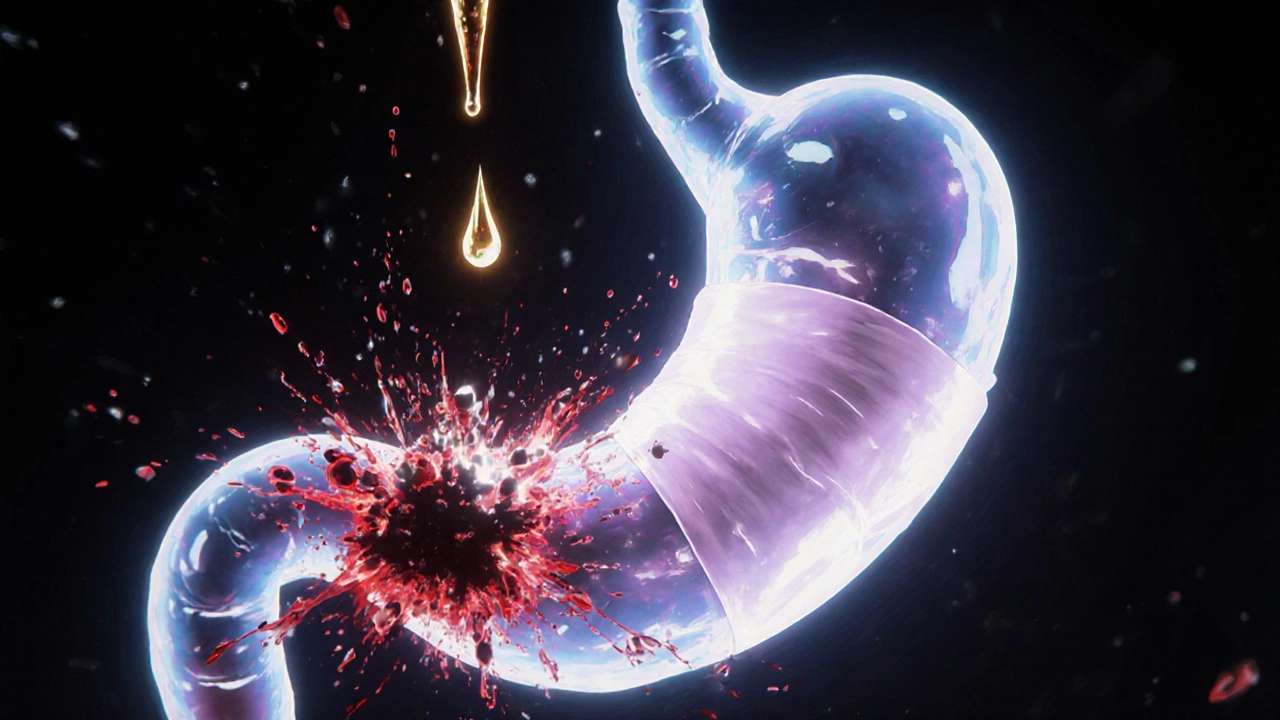When your stomach hurts after eating, and the burn won’t go away, it might not just be indigestion. It could be a stomach ulcer, a sore in the lining of your stomach or upper intestine that develops when acid eats through the protective layer. Also known as a peptic ulcer, it’s not caused by stress or spicy food alone — though those can make it worse. The real villains are usually H. pylori, a bacteria that lives in the stomach and weakens its protective mucus or long-term use of NSAIDs, common painkillers like ibuprofen and naproxen that reduce protective chemicals in the stomach lining. These are the two main reasons over 80% of ulcers form — not lifestyle choices, not bad habits, but biology and medication.
Many people think ulcers are rare, but they’re actually common. You don’t need to be a heavy drinker or smoker to get one. Even someone taking daily aspirin for heart health could be at risk. The symptoms are simple: burning pain in the upper belly, especially between meals or at night; bloating; nausea; feeling full too fast. Some people don’t feel anything until it gets serious — bleeding, vomiting blood, or black stools. That’s when it becomes an emergency. Testing for H. pylori is quick — a breath test, stool sample, or blood test — and treating it with antibiotics can heal the ulcer and stop it from coming back. But if NSAIDs are the cause, stopping them or switching to safer options like acetaminophen can make all the difference.
What you’ll find in the posts below isn’t just theory. It’s real comparisons: how Toradol and other painkillers can trigger ulcers, how azathioprine affects gut health, how alcohol interacts with stomach meds, and what natural remedies might help without messing with your treatment. These aren’t guesses. These are facts from people who’ve been there — and from studies that track what actually works. Whether you’re trying to avoid an ulcer, manage one, or understand why your doctor changed your meds, this collection gives you the clear, no-fluff details you need.

Learn why mixing alcohol with sucralfate can delay ulcer healing, increase pain, and raise bleeding risks. Get clear advice on what to drink instead and how long to wait after treatment.
